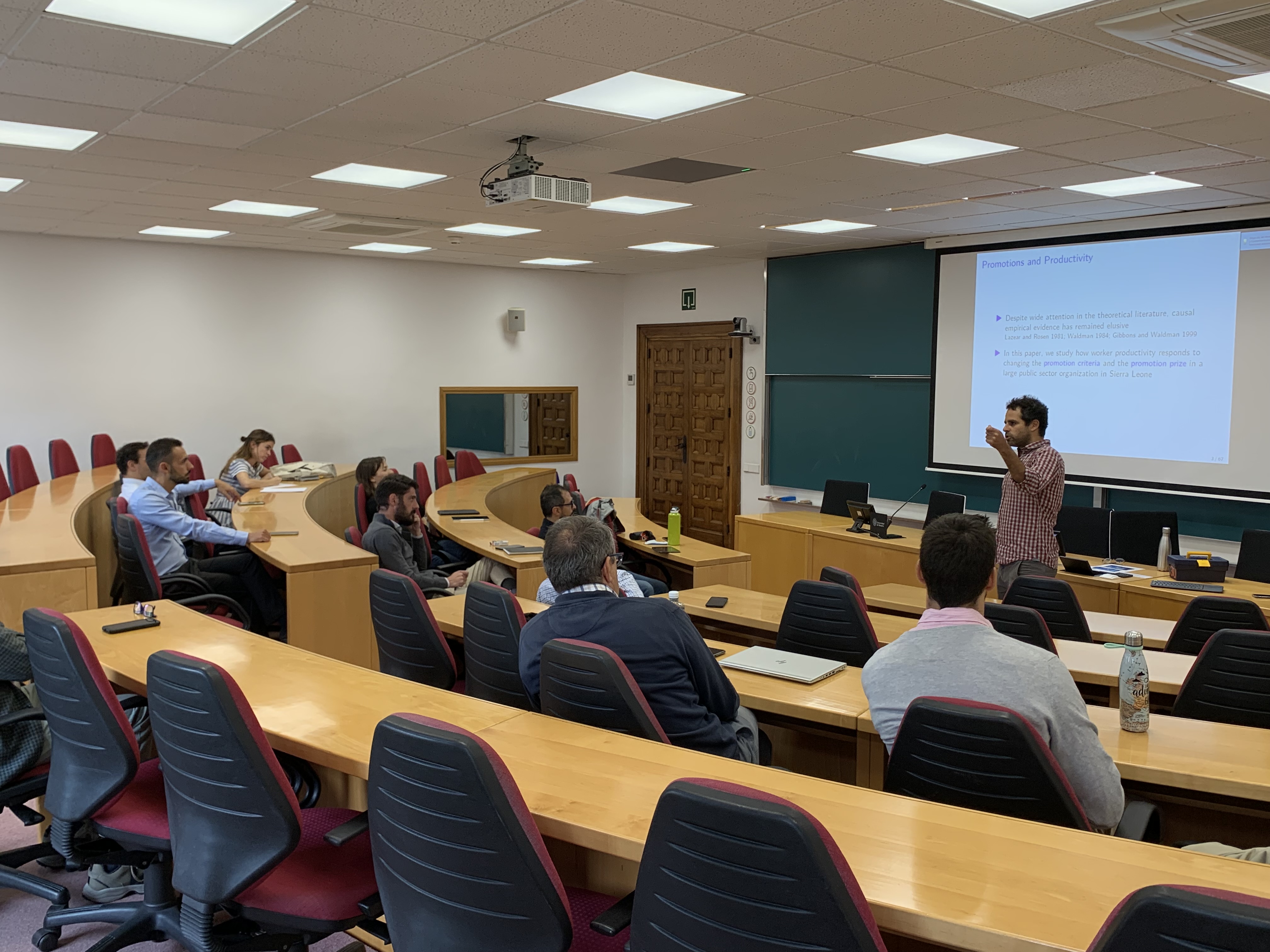Peruvian researcher from Pompeu Fabra University, Gianmarco León-Ciliotta, visited NCID to give a seminar entitled "Promotions and Productivity: The Role of Meritocracy and Pay Progression in the Public Sector". He explained that pay progression has opposite effects depending on whether promotions are meritocratic or not: “In a meritocratic regime, the productivity of workers increases their performance by 28%”.
According to León-Ciliotta, “when workers are faced with meritocratic promotions, with the possibility of raising the organization´s ladder, they work harder. In the other hand, workers who know that promotions are decided in a non-meritocratic way, decrease their effort”.
The setting where this was studied was among health workers in Sierra Leone: “We experimentally varied whether promotions are meritocratic or not, and we cross randomize this with information about the perceptions of workers about their bosses wage”.
León Ciliotta confirmed that “where meritocracy works, there’s better performance, and workers spend longer time in the same work. If it’s the opposite, they will change more often”. The study also reflects that this is not only a phenomenon present in the public sector. The combination low meritocracy and steep pay progression is also pervasive in the private sector.







